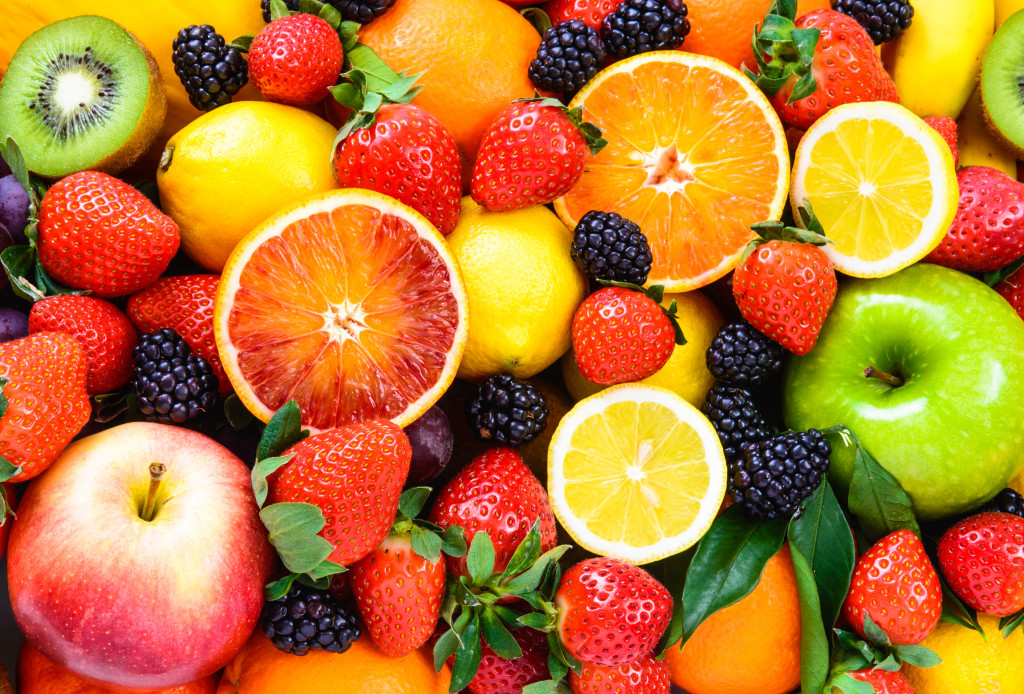Healthy eating is essential for your physical and mental health. But did you know that your diet can also directly impact oral health? If you want to keep your teeth, gums, and mouth in top shape, consider changing your diet. Here’s what you need to know about the relationship between your diet and oral health.
The Relationship Between Diet and Oral Health
Your diet plays a major role in the health of your teeth and gums—so it’s essential to be aware of what types of food can help or harm your mouth. Sugary foods are one of the main culprits when it comes to poor oral health.
Foods high in sugar can lead to tooth decay due to the bacteria in people’s mouths that feed off sugar. This bacteria forms plaque which then eats away at our enamel, leading to cavities, discoloration, and other dental problems. It’s best to avoid sugary snacks and drinks as much as possible if you want to maintain good oral health.
In addition to sugary foods, acidic foods can damage your teeth over time. When acids attack our enamel, they weaken it, leading to erosion of the tooth’s surface over time. Acidic foods such as citrus fruits and soft drinks should be consumed in moderation if possible. While these types of food are part of a healthy diet overall, it’s important not to overdo it if you want healthy teeth!
On the flip side, certain foods can help maintain good oral health! Foods high in calcium, such as yogurt or cheese, have been linked with stronger teeth because they help strengthen enamel. Vitamin C is also essential for maintaining gum health; oranges are a great source of vitamin C, so adding them to your regular diet will help ensure strong gums! Specific diets can also improve your oral health. Here are some of those diets:
The Mediterranean Diet
The Mediterranean diet is known for its focus on fresh fruits, vegetables, whole grains, legumes, nuts, seeds, fish, and olive oil. This diet has been linked with numerous health benefits, including improved cardiovascular health and lower cancer rates. It’s also great for your teeth! The fiber-rich foods help to promote saliva production, which helps to cleanse the mouth naturally. Additionally, fatty fish such as salmon and sardines are packed with omega-3 fatty acids, which have been shown to reduce inflammation in the gums, which can lead to gum disease.

The DASH Diet
The DASH (Dietary Approaches to Stop Hypertension) diet is an excellent choice for those looking to maintain good oral health. This diet focuses on reducing sodium intake while increasing the consumption of fruits and vegetables, whole grains, lean proteins, nuts, seeds, and low-fat dairy products. The emphasis on production helps to increase saliva production, which helps keep bacteria levels down in the mouth while reducing acidity, which can damage tooth enamel over time. Additionally, lean proteins provide essential nutrients that promote strong bones and connective tissue in the gums, which helps reduce the risk of periodontal disease.
Vegan/Vegetarian Diets
Going vegan or vegetarian is another excellent choice for promoting good oral health. Plant-based diets are high in fiber-rich fruits and vegetables but low in processed foods, which means less sugar entering the body—a significant cause of tooth decay! Plant-based diets also tend to be higher in calcium (found in leafy greens), magnesium (found in legumes), phosphorus (found in nuts), and vitamin B12 (found in fortified cereals) – all essential nutrients for maintaining strong teeth! Additionally, vegans/vegetarians usually consume less saturated fat than meat eaters, which reduces inflammation throughout the body, including inflammation around the gums – another major cause of gum disease.
Visit Professionals
However, you’ll need to visit professionals before you start doing these diets. First, visit your nutritionist. They can help you plan the right diet for your needs and will provide the most benefits to oral health. Next, visit your local dental office. They can assess the current state of your teeth and gums and recommend the best course for maintaining good oral health. Some simple lifestyle changes or professional dental cleanings may be all that’s needed to help you maintain strong, healthy teeth. They might also suggest certain tips that can help your oral health.
Overall, several diets and lifestyle changes can promote good oral health. Some essential tips include incorporating more calcium-rich foods into your diet, avoiding sugary and acidic foods, and visiting a dental professional regularly for cleanings and assessments. Following these simple steps can help ensure your teeth and gums are healthy and strong for years to come!




